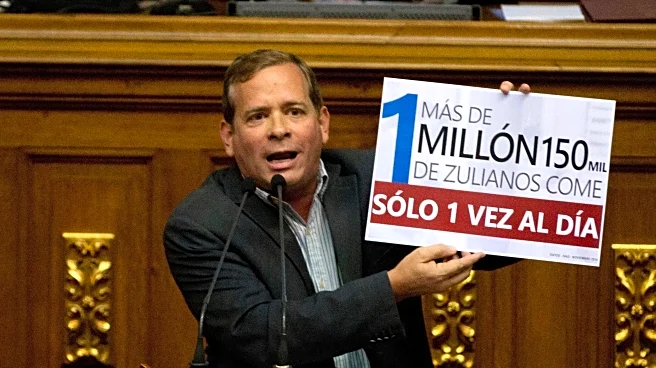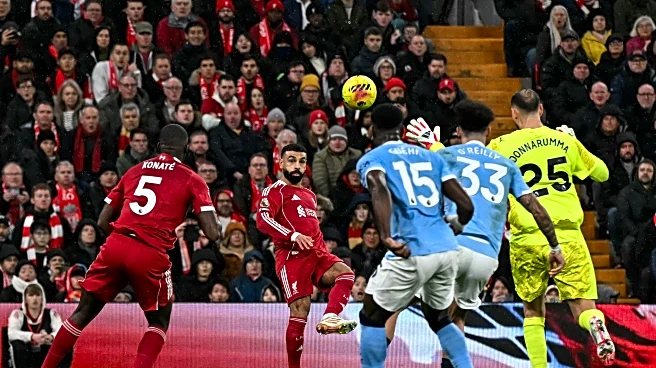What is the story about?
What's Happening?
President Donald Trump has proposed a 21-point plan to end the conflict in Gaza, which includes the release of hostages in exchange for Palestinian prisoners and a phased withdrawal of Israeli forces. The plan, unveiled at the United Nations, aims to establish a technocratic transitional government in Gaza, excluding Hamas from future governance. However, families of hostages have expressed skepticism and frustration, fearing that Israeli Prime Minister Benjamin Netanyahu might obstruct the plan. The families demand that any agreement must ensure the disarmament of Hamas and the safe return of hostages.
Why It's Important?
The proposed plan by President Trump represents a significant diplomatic effort to resolve the ongoing conflict in Gaza, which has broader implications for Middle Eastern stability and U.S. foreign policy. The involvement of international stakeholders, including the Palestinian Authority and the United Arab Emirates, highlights the complexity of achieving peace in the region. The resistance from hostage families underscores the human impact of the conflict and the challenges in balancing political agreements with humanitarian concerns. The outcome of this initiative could influence future U.S. diplomatic strategies and its role in Middle Eastern peace processes.
What's Next?
The success of President Trump's plan depends on the cooperation of multiple parties, including Israel, Hamas, and international actors. If the plan is accepted, it could lead to a significant de-escalation of tensions in Gaza. However, if key stakeholders, particularly Hamas, reject the conditions, the conflict may continue, potentially leading to increased military actions. The response from Prime Minister Netanyahu and the Israeli government will be crucial in determining the plan's viability. Continued advocacy by hostage families may also influence public opinion and political decisions in Israel.

















